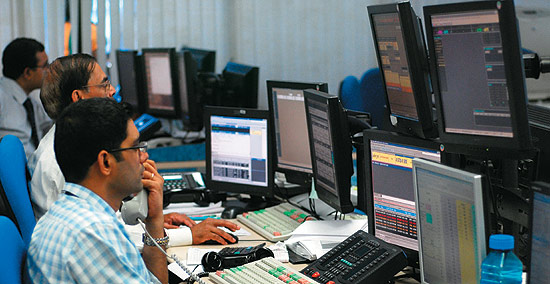 There may be a lot of interest in the IPO market, but prices cannot hold in the secondary market After a scary period for the stockmarket in 2008 and the first half of 2009, promoters seem to be regaining confidence and are willing to come back to raising money through initial public offers (IPOs). In just one day, on 30 September 2009, eight companies filed their draft offer documents with the Securities and Exchange Board of India (Sebi). It was the same the next day. Together, this was more than the total number of companies that approached Sebi during the entire January-August 2009 period. Anecdotal evidence also points towards a change in promoter outlook. Says Chetan Majithia, head of equity at rating agency Crisil that also grades IPOs: "We are seeing traction in the IPO market. Due to the changing environment, companies, especially from power and real estate sectors, have started enquiring about IPO grading." This is just the promoters’ side of the story. Are investors accepting? Contrary signals The subscription figures for recent IPOs indicate that investors are excited about every issue that hits the market. Adani Power, the first Rs 1,000 crore-plus IPO in 2009, was oversubscribed around 21 times. The next big issue was from the public sector unit (PSU) NHPC, which was oversubscribed 23 times. Oil India, the second PSU IPO this year, attracted even higher public interest and was oversubscribed 31 times. However, signals from the secondary market are totally different. Early interest generated by most of these companies soon fizzled out—shares of half of the companies that came out with IPOs this year are now trading below their issue prices in the secondary market. The much-hyped NHPC stock, for example, is trading 9 per cent below its issue price. This indicates the market’s current belief that the NHPC stock was overvalued at the issue price. *** Slow to take off Only half of the companies that came with their IPOs in 2009 have given positive returns and then too most have underperformed the market
Current price and return are as on 12 Oct 2009 *** Except Mahindra Holidays and Resorts India and Oil India, none of the newly listed large companies have been successful enough to substantially lift investor sentiment in the secondary market, even when the overall market, as indicated by the Sensex, has more than doubled in value. What lies ahead? In spite of giving low returns on listing and later in the secondary market, IPOs have continued to attract significant investor interest. As we go to press, Indiabulls Power, promoted by Indiabulls Real Estate, is in the market to raise around Rs 1,600 crore. By the end of the day the issue opened, it was oversubscribed 5.95 times. Other prominent companies such as JSW Energy, Reliance Infra Tel and Emaar MGF Land are also in the IPO pipeline. What should you do? Most of the companies planning to bring IPOs are in the infrastructure and construction space. The common assumption underlying the investment argument for these IPOs is that the demand for infrastructure is exceeding supply. Although this opens an opportunity for companies in the long term, the short- and medium-term earning visibility of these companies also has to be looked into. Based on this, Indiabulls Power is not an attractive investment. Says Rupesh Sankhe, power sector analyst at Angel Broking: "Although the outlook for the power sector is good, the short-to-medium term earning visibility for Indiabulls Power is non-existent." Instead, you may, therefore, look at listed companies that have operational track records and are trading at relatively cheaper valuations. | |||||||||||||||||||||||||||||||||||||||||||||||||||||
Saturday, October 24, 2009
IPOs Losing Steam
Labels:
IPO
Subscribe to:
Post Comments (Atom)

No comments:
Post a Comment